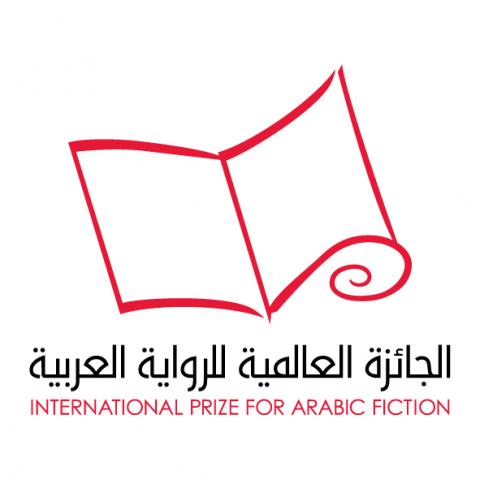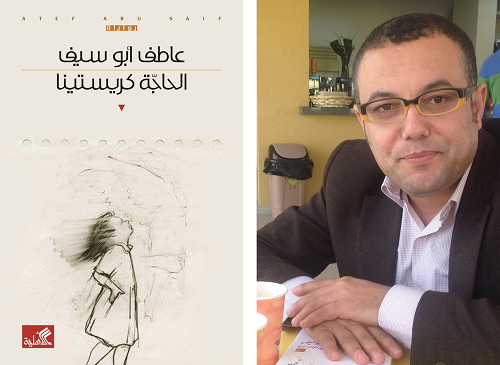Interview with longlisted author Atef Abu Saif
06/02/2018

When did you begin writing Christina and where did the inspiration for it come from?
I began writing Christina in the summer of 2014, immediately after the Israeli attack on the Gaza strip. The horrors of war were still evident everywhere, and terror ate away at people’s sense of stability. I began writing the first chapter, entitled ‘the ghost’. I would see a frightening ghost every night, which I thought would devour us all. It was as though we had emerged safely from the war by chance, just a coincidence. I also wanted to talk about the women of the camps. Since I was a child, I have been enthralled by the strength of those women, who battled with life. In the camp in our district, as in every district, there was a group of strong women, without whom you could not imagine life carrying on. Alongside many other things, they played an essential part in resisting the occupation. I remember how they used to rescue us young boys from the hands of the army. My mother was one of them, of course. I wondered how I could celebrate this rich world and repay some of the debt I owed to it. From this came the idea of the novel’s heroine. And when I was a refugee from the city of Jaffa, the moving story – which made me cry as a child – of my grandmother being forced to leave her house in Jaffa and live in a tent on the ashes of Gaza, was constantly in my mind.

There was a big question in my mind about identity and how Palestinians succeed against all odds in retaining a connection with the smallest of things that remind them of their old home. Like the old key which every family keeps and displays at the front of their house, as if to say to Time that we will return, whether you like it or not. How our neighbour used to talk about fishing in Jaffa. Memories of school, like stories from Alice in Wonderland. A rich world. Memory which contradicts the hardship of current reality. Escaping to the past because the present only brings pain.
Christina or “Fidda” from Jaffa was born out of these reflections. She fights intrepidly in the face of reality, being a refugee and denied her identity, to hold onto her memories. The girl who arrives in the camp as a nobody, with a dubious identity, becomes with time the most important woman in the camp and one of its iconic figures. She disappears and returns. It is an appropriate tale for Palestinian reality, reflecting the dualism of presence and absence.
Did the novel take long to write and where were you when you finished it?
The story took about two years to write, or maybe a bit less. It is set in three cities: Jaffa, where Fidda is born and grows up; London, where she is forced to go for medical treatment and stays ten years; and Gaza, where she lives. I was fortunate to be able to write about the three places while I was living in them, for one reason or another. I spent two months in London after obtaining a writing grant from the Bloomsbury Foundation. Since I needed to write about London in the period from the late 1940s to the late 1950s, I visited different museums in London, especially historical ones, to become familiar with the clothes, customs, music, how things looked, the architecture and so on, from that era. I read diaries of British soldiers and administrators who fought in the three Gazan battles (1917), and those who worked in the administration of the Mandate in Jaffa. All these I found in the Imperial War Museum in London.
I also went to Jaffa – some of my family still live there – and walked through the alleyways and streets where Christina wandered as a child. I saw her school. Jaffa in the book became a mixture of what my grandmother had told me, with her cinematic, panoramic, yet detailed vision of the city in the 1930s, and what I saw with my own eyes and experienced. I wrote large parts of the novel during different periods I spent there.
How have readers and critics received it?
People still ask me: Is it a true story? Is Christina really living in the camp? They have particular reason to wonder, since I talk about refugees from Jaffa, as my family were, and the Jaffa district of the camp, and I also refer to the camp I live in. Of course, everything in the novel is imagined. As soon as something becomes part of the novel it becomes imagined, even if it does actually exist in real life.
What is your next literary project after this novel?
I am working on my new novel Walkers Who Do Not Cross the Road and trying to make progress with it. I want to be faithful to the world which gave me all these stories and the world I created in my previous novels. I hope this world will remain and be part of our life, like a boat resisting the waves.
